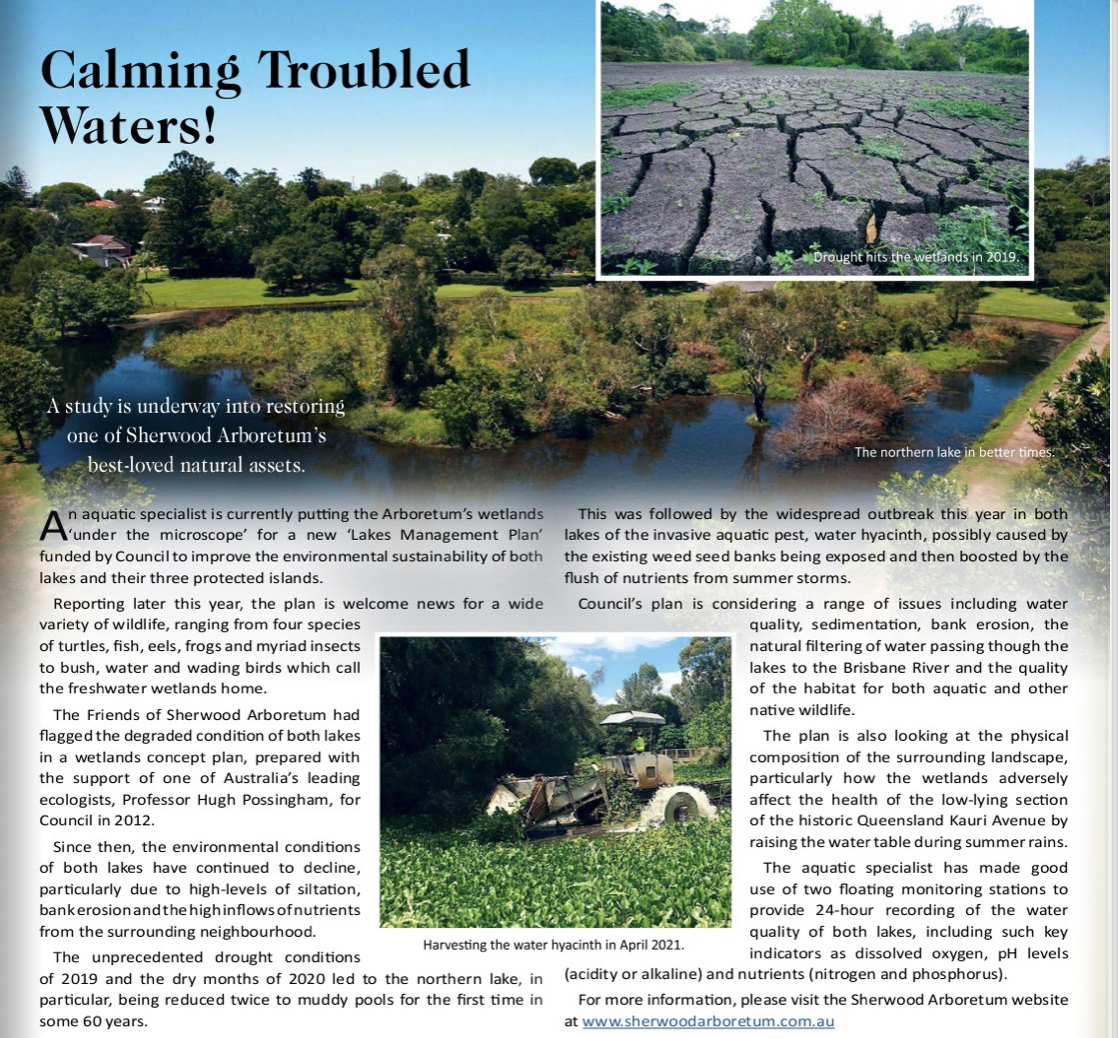The Local Bulletin July 2021

Media Release Friends of Sherwood Arboretum (The Local Bulletin July 2021)
Calming troubled waters!
A study is underway into restoring one of Sherwood Arboretum’s best-loved natural assets.
An aquatic specialist is currently putting the Arboretum’s wetlands ‘under the microscope’ for a new ‘Lakes Management Plan’ funded by Council to improve the environmental sustainability of both lakes and their three protected islands.
The plan is welcome news for a wide variety of wildlife, ranging from four species of turtles, fish, eels, frogs and myriad insects to bush, water and wading birds which call the freshwater wetlands home.
The degraded condition of both lakes was earlier flagged by the Friends of Sherwood Arboretum (FOSA) in a wetlands concept plan, prepared with the support of one of Australia’s leading ecologists, Professor Hugh Possingham, for Council in 2012.
Since then, the environmental conditions of both lakes have continued to decline, particularly due to high-levels of siltation, bank erosion and high inflows of nutrients from the surrounding neighbourhood.
The unprecedented drought conditions of 2019 and the dry months of 2020 led to the northern lake, in particular, being reduced on both occasions to muddy pools for the first time in some 60 years.
This was followed by the widespread outbreak this year in both lakes of the invasive aquatic pest, water hyacinth, possibly caused by the existing weed seed banks being exposed and then followed by the flush of nutrients from summer storms.
Council’s plan is considering a range of issues including water quality, sedimentation, bank erosion, the natural filtering of water passing though the lakes to the Brisbane River and the quality of the habitat for both aquatic and other native wildlife.
The plan is also looking at the physical composition of the surrounding landscape, particularly how the wetlands adversely affect the health of a low-lying section of the historic Queensland Kauri Avenue by raising the water table during summer rains.
The aquatic specialist has made good use of two floating monitoring stations to provide 24-hour recording of the water quality of both lakes, including such key indicators as dissolved oxygen, pH levels (acidity or alkaline) and nutrients (nitrogen and phosphorus).
For more information, please visit the Sherwood Arboretum website at www.sherwoodarboretum.com.au
image captions
The northern lake in better times
Drought hits the wetlands in 2019.
Harvesting the water hyacinth in April 2021